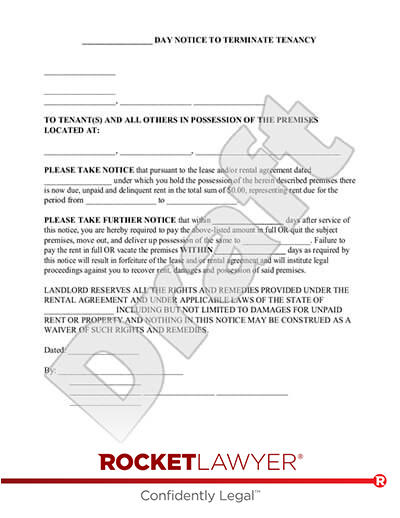Who has the legal right to stay in a shared home when couples separate or divorce?
If a married couple bought a home together during their marriage, no matter who paid more for the mortgage, maintenance, or other home expenses, both partners likely have ownership rights to the home until their property is divided by a Marriage Separation Agreement or Divorce Settlement Agreement.
Marriage and divorce laws are different in each state, but many state laws say a home may not be considered shared if it was paid for with money owned by one person before the marriage, with an inheritance, or with other assets not considered marital or shared property. Whether you are married or not, a Parenting Plan could also affect who moves out, and when, if you have children under 18 years old together.
If the shared home is considered separate property, then the partner who owns it may make the other partner move out. If both partners share ownership rights equally, it can get complicated and neither person may have the right to kick out the other.
The rules can be a little different for unmarried couples. Whoever's name is on the title owns the home, and they may ask their former partner to leave. If the home is a rental, then the process is often the same as if a roommate moves out. Depending on the terms of the Lease Agreement, you may be able to take over your partner's part of the rent, wait until the lease term ends, find a new roommate, or ask the landlord to end the lease early.
What can I do if my ex will not leave my home?
If the house legally belongs to you (your name is on the title and it is not considered marital property), then your ex typically has no right to stay. It is probably not wise or kind to kick them out before they have a chance to find a place and make plans, and it likely will go much more smoothly if you give them a reasonable amount of time to do so.
Still, you can usually evict your ex if they refuse to move out in a reasonable amount of time.
How long should I give my ex to move out?
You may be wondering what is considered a reasonable amount of time. Depending on state laws, your ex may have tenant rights after living in your home for a certain amount of time. So, even if they have not signed a Lease Agreement and do not pay rent, it is probably best for you to treat them like a tenant.
This means a smart first step is a written Eviction Notice explaining that they must move out within a certain amount of time, generally 30 days or four weeks.
How can I evict my ex from a house I own when they refuse to leave?
In most cases, exes move before the deadline given in the Eviction Notice. But if this does not happen, and you have the legal right to evict your ex because your name is on the title and the home is not marital property, you may want to start the eviction process. The details may be different in each state, but these are the usual steps:
- Give proper written notice.
- Wait for the move-out deadline in the notice to expire.
- File the necessary legal paperwork in court.
- Give your ex a copy of the paperwork explaining that they must appear in court and why, called the summons and the complaint.
- Wait for your ex to respond (typically five business days).
- Ask for a trial date if they continue to stay.
- If the court agrees with you, but your ex still refuses to leave, you may ask the sheriff to help remove them.
How do I give my ex a legal Eviction Notice?
It is typically not enough to simply tell your ex they have a certain amount of time to move out of your home. Also, it is usually not enough to tell them they need to leave by sending a text message or leaving a note on the refrigerator. To have legal force, an Eviction Notice (which is not the same as the summons and complaint) should be in writing and contain the following information:
- Name, address, and phone number of the person whose name is on the home's title.
- Date the ex is receiving the Eviction Notice, demand that they move out, and date when they must be out.
- Name, address (if it is different from where they receive their mail), and contact information of your ex.
- Statement of how they received the notice.
- Your signature.
The Eviction Notice is usually delivered in a way that makes it easy for you to prove that the notice was delivered to the person being evicted. One common delivery method is certified mail. Another method is to hire a process server, which is a person who delivers the notice in person. You may want to ask a lawyer for help as mistakes in the eviction process can be costly and create more problems for what is already likely a tense situation.
If you have more questions about evicting a former partner, reach out to a Rocket Lawyer On Call® attorney.
Please note: This page offers general legal information, not but not legal advice tailored for your specific legal situation. Rocket Lawyer Incorporated isn't a law firm or a substitute for one. For further information on this topic, you can Ask a Legal Pro.
